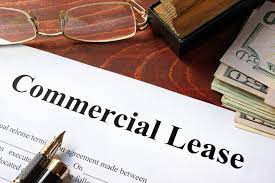by Mike Kushner, CCIM
The right space has a profound impact on how your business functions. It contributes to more efficient operations, better employee retention, and the ability to accommodate growth. However, even once you’ve found the ideal space, one major obstacle remains before you can open for business – negotiating the lease.
This is one of the most important steps in the leasing process. You need to be sure that you’re getting a fair deal that is attractive to both you and your landlord. This is all the more reason why you should have commercial tenant representation. Still, many people forgo having representation and, as a result, have found themselves in some undesirable circumstances.
There are a myriad of things that could occur without a rep – here are a few of the most common dangers:
1. Leasing Too Much Space
A tenant rep will assist you (along with a design specialist) in calculating your actual need for space and determining your particular layout needs. It’s easy for your eyes to be bigger than your budget. While that huge corner office looks great, it may also be more space than you need and can afford right now. A tenant rep will help guide you in determining how much square footage you actually need to conduct business while having enough space to grow, while making sure you don’t blow your budget by going too big.
2. Missing Valuable Opportunities
A designated commercial tenant rep can identify a property that you may have overlooked, but that offers you exactly what you need, maybe even for lower rental rates. Experience, expertise, and market knowledge are valuable skills that a tenant representative brings to the table, giving them the ability to find some hidden gems.
3. Paying Higher-Than-Market Rental Rates
Tenant reps stay current on market rates, and know what is an appropriate price for a space based on different factors of the property. The same knowledge would take you hours of research to develop, and that research still may not provide you with all of the information that you need. Additionally, your tenant representative is a skilled negotiator, who can use the market rental rate to earn you a fair price.
4. Paying Higher-Than-Market Effective Rental Rates
In addition to the market rental rate, you must also take into consideration the inducements and incentives that are currently being offered in the market. These impact the true rental rate (or your rental rate calculated after such perks are factored into the life of the lease). Incentives can include free rent, relocation allowances, or covering the cost of breaking your current lease. However, this information is not typically publicly available, putting you at a disadvantage. A commercial tenant representation agent will know what other spaces are offering as incentives, and will be able to leverage those to earn you a similarly attractive deal.
5. Misunderstanding Usable vs. Rentable Square Feet
In a nutshell, usable space is what you personally occupy from wall to wall. Rentable space includes your usable space PLUS any common areas such as lobbies, restrooms, storage space, and hallways that are shared with other tenants. A tenant rep will educate you on the difference between the two and how they apply to your shortlisted spaces, helping to make sure you actually end up with the right amount of space for your business. Also, your representative can ensure your lease is structured with the appropriate definition so you’re not being taken advantage of.
6. Not Considering the Components and Costs of CAM Charges
Common Area Maintenance, or CAM, charges are billed to a tenant in addition to the cost of rent. They cover work performed on shared spaces, such as lobbies, bathrooms, and hallways. The work could include cleaning and maintenance, or larger repairs. Think of it like an HOA fee, but for commercial office space. A tenant representative knows to inquire about these costs and make sure they’re fair, while taking into account how they’ll affect your budget.
7. Not Understanding Lease Clauses
There are many lease clauses that are written in legalese, that can be very overwhelming if you don’t know what you’re looking at. Two clauses that are common to most commercial leases are attornment and non-disturbance. An attornment clause ensures that a tenant continues paying rent to any new landlord throughout the remainder of the lease term, even if the property is foreclosed or sold. A non-disturbance clause gives a tenant the right to continue occupying the leased premises as long as the tenant is not in default, even if the property is foreclosed or sold.
Both of these can be complex and confusing in the specifics to someone who is not experienced, so it’s important to have commercial tenant representation and a real estate attorney to review your lease and advocate for your best interests before signing any lease – with or without these clauses.
These are just some of the many potential pitfalls that you need to keep in mind when selecting your new office space and signing the lease. Work with your tenant representation to ensure you’re finding the right location and achieving the most favorable lease possible during this process!
If you’re ready to start the process with commercial tenant representation, contact us today to speak with our experts!
This article was originally published on the Omni Realty Group website by Mike Kushner, CCIM. Omni was an exclusive buyer agent/tenant rep commercial real estate firm owned by Mr. Kushner prior to his joining the Capstone Commercial team. It has been adapted and reposted with permission. See the original article here.






